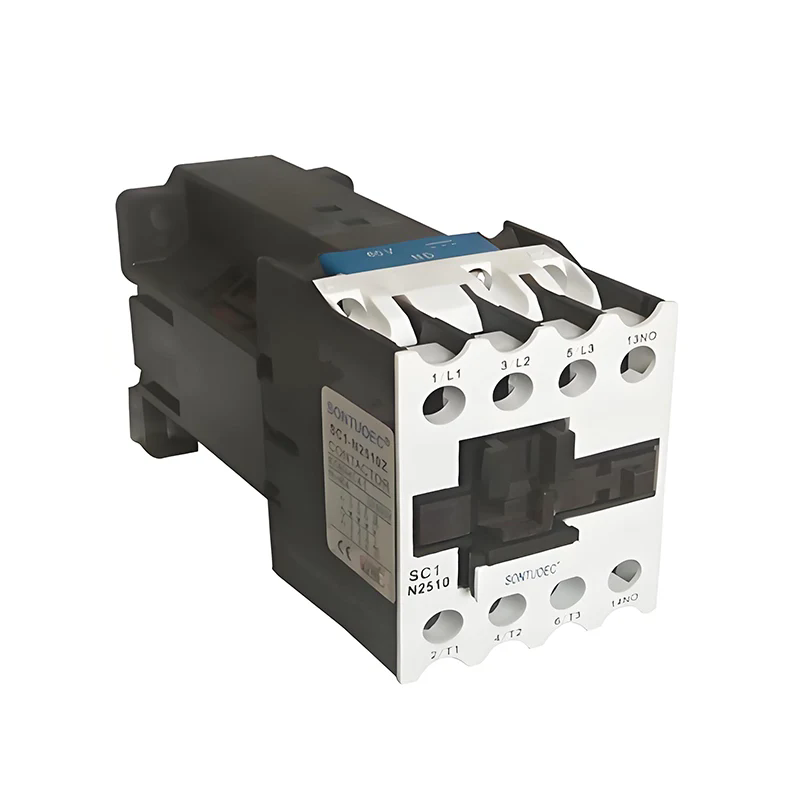Understanding DC Contactors: Key Functions and Applications
2025-03-31
In electrical systems, switching and controlling power efficiently is crucial for safety and performance. One essential component in DC circuits is the DC contactor, a specialized switching device used to manage high-current loads. Whether in industrial machinery, electric vehicles, or renewable energy systems, DC contactors play a vital role in ensuring reliable power control.
What is a DC Contactor?
A DC contactor is an electromechanical switch designed to control the flow of direct current (DC) in a circuit. It operates by using an electromagnet to open or close electrical contacts, allowing or interrupting the current flow. Unlike AC contactors, which are designed for alternating current (AC) applications, DC contactors are built to handle the unique challenges of DC circuits, such as arc suppression and high inrush currents.
Key Features of DC Contactors
1. High Voltage and Current Handling
DC contactors are designed to switch and control high-power loads, making them suitable for industrial and automotive applications.
2. Arc Suppression Technology
Since DC arcs are more difficult to extinguish than AC arcs, DC contactors incorporate special arc suppression methods, such as magnetic blowouts or arc chutes, to prevent damage and ensure longevity.
3. Compact and Durable Design
Many DC contactors are built with rugged enclosures to withstand harsh environments, including heat, moisture, and vibrations.
4. Energy-Efficient Coil Operation
Modern DC contactors use low-power coils and economizer circuits to reduce energy consumption and improve efficiency.
Applications of DC Contactors
1. Electric Vehicles (EVs)
DC contactors are used in electric cars, buses, and trucks to connect and disconnect the battery from the motor controller. They help ensure safe operation and protect the system from electrical faults.
2. Renewable Energy Systems
In solar power and wind energy applications, DC contactors manage the flow of electricity between batteries, inverters, and other components. They improve system efficiency and prevent overloading.
3. Industrial Equipment
Many industrial machines and automation systems rely on DC contactors for motor control, heavy-duty switching, and safety interlocks.
4. Railway and Marine Systems
Trains, ships, and other transportation systems that operate on DC power use contactors for reliable switching and protection.
5. Battery Management Systems
In large battery storage solutions, DC contactors regulate charging and discharging, ensuring safe and stable energy distribution.
Choosing the Right DC Contactor
When selecting a DC contactor, consider factors such as voltage and current ratings, coil power consumption, and environmental conditions. It is also important to choose a contactor with effective arc suppression and a long operational lifespan.
Conclusion
A DC contactor is a crucial component in modern electrical systems, providing safe and efficient power control in a wide range of applications. From electric vehicles to industrial machinery, these devices enhance performance, reliability, and safety. By selecting the right DC contactor for your needs, you can improve the efficiency and longevity of your electrical system.



